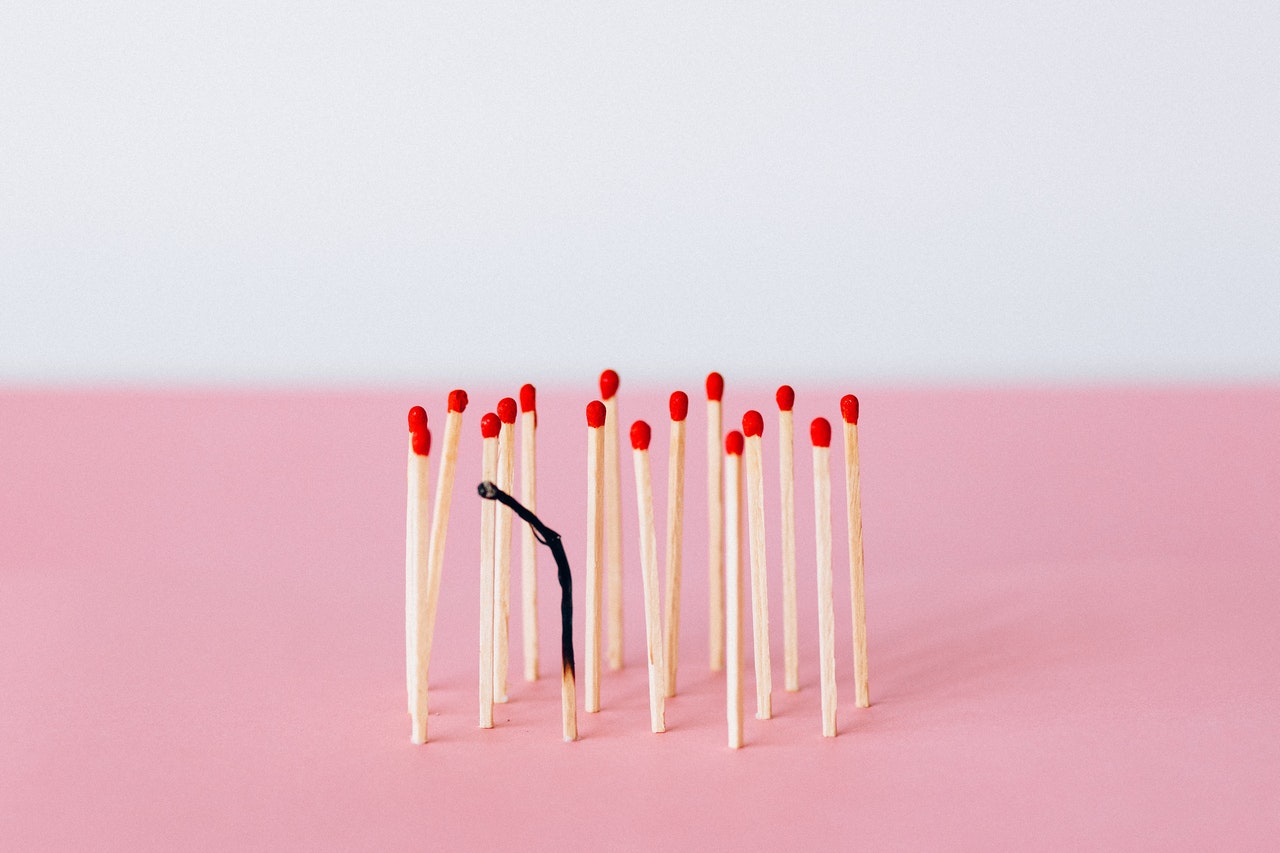4 Signs You're Burning Out From Remote Work
Published

The pandemic continues to shape work culture and undermine the rhythms we once knew. This new reality wasn't all bad. For example, flexibility: Rigid working hours may be a thing of the past as more and more people can work from the comfort of their own home and on their own schedule.
However, remote work also poses some risks to your mental health - and it's important that you set appropriate boundaries to protect your well-being.
If work takes up more space in your mind and life than you would like, you may be on the verge of burning out. Here are four telltale signs to look out for.
1. You don't take time off even though you have the opportunity
Employees often don't realize how much time and energy they spend on their work. Maybe you're like most remote workers - you don't take the time you deserve.
A telltale sign of burnout is a refusal to take a break for self-care. Maybe you feel like you don't deserve a break because doing so would make you withdraw. Maybe you don't want to log off and face the stressful reality of life in a pandemic.
Either way, if you don't make time for yourself, you're probably on the road to burnout.
2. You use your work as an escape from stress
Getting busy with work can be a welcome distraction from everyday life, and increasing your productivity isn't always a bad thing. But there comes a point when you have to face reality, even if it's difficult for you. When you numb yourself by staring at your computer screen or constantly scheduling meetings, you miss the opportunity to solve problems (or solve problems before they become problems).
These stressors only become greater if we ignore them. If you view your job as a respite from everyday life (or worse, if you feel hopeless and pointless when you're not working), maybe it's time to take a much-needed break to address the things you're ignoring.
3. You lack boundaries in your remote work environment
Not everyone has the luxury of a private office at home. Your kitchen table or a makeshift desk in your bedroom can work just as well as a workstation or office.
But the lack of temporal and spatial boundaries is a different story.
If you're constantly trying to fit work into random parts of your day (e.g. checking email while brushing your teeth or working on a project while watching a movie), you're at risk of burning out.
Remote work is much more like the gig economy than it used to be, thanks to the lack of job security and flexibility in work hours. But treating your job like a "gig" when it isn't can put your professional and personal life at risk.
Spreading your work throughout the day and your home can disrupt your concentration, stifle your creativity, and, worst of all, slowly burn you out. When you associate your entire home with your work, it becomes difficult to truly relax when you need it most.
Instead of thinking of your entire home as your office and your entire day as your work day, choose a specific area and time to regularly retreat.
Setting limits on your “work mode” will only be good for your job and your mental health.
4. You're obsessed with job security
Public health was not the only area of life affected by COVID-19. The shrinking economy forced many industries to lay off employees, creating a sense of fear.
Regardless of whether your job is safe or not, you may find yourself going into "panic states" to manage your fears. It makes sense to work a little harder so that you can make a valuable contribution to your company.
But fixating on job security by working harder comes at a price. It costs us our connection to reality, to our experiences and to others. We are no longer able to evaluate the situation, recognize our feelings and be there for others. We become numb. Eventually we collapse because we tried too hard to pull ourselves together.
If you use your work to avoid feelings of powerlessness, be careful. You may be able to protect your job, but you will lose your well-being in the process. And that's not a risk worth taking.
How you can protect yourself from burnout
Life during and after a global pandemic is new territory for all of us - and the worst part is that it is full of uncertainty. It's fair to say that pretty much every area of life is disrupted, and for who knows how long.
Maybe you'll return to the office soon (or you already have). Maybe you will work from home indefinitely.
Remember: These changes in the way you work don't have to throw you off track or put your mental health at risk. The new territory simply requires a new strategy: one that prioritizes your well-being so that you can make a meaningful contribution, whether you work in a cubicle or in your living room.








